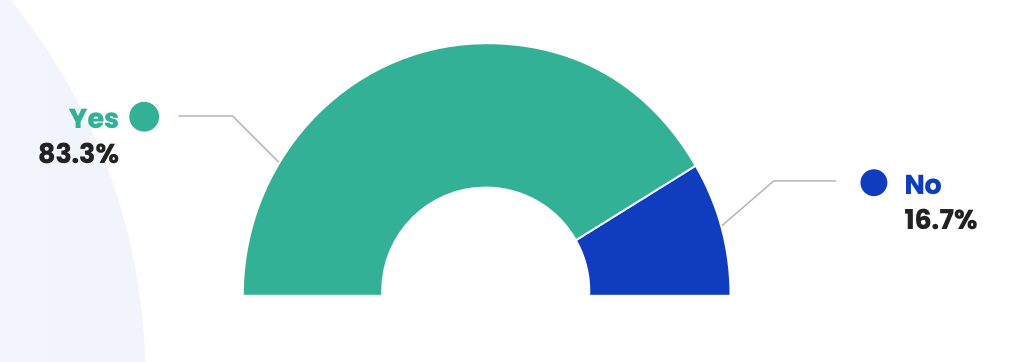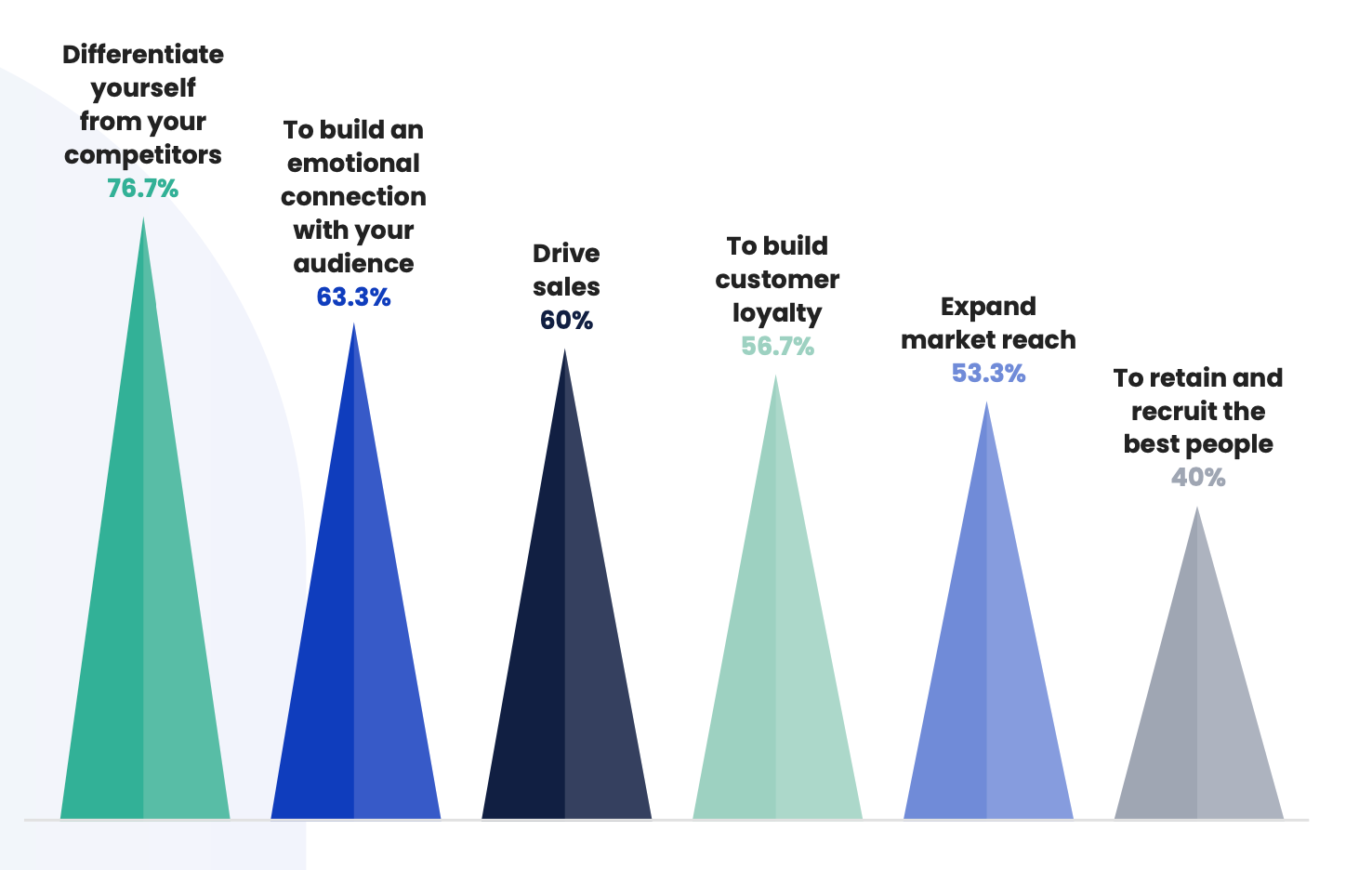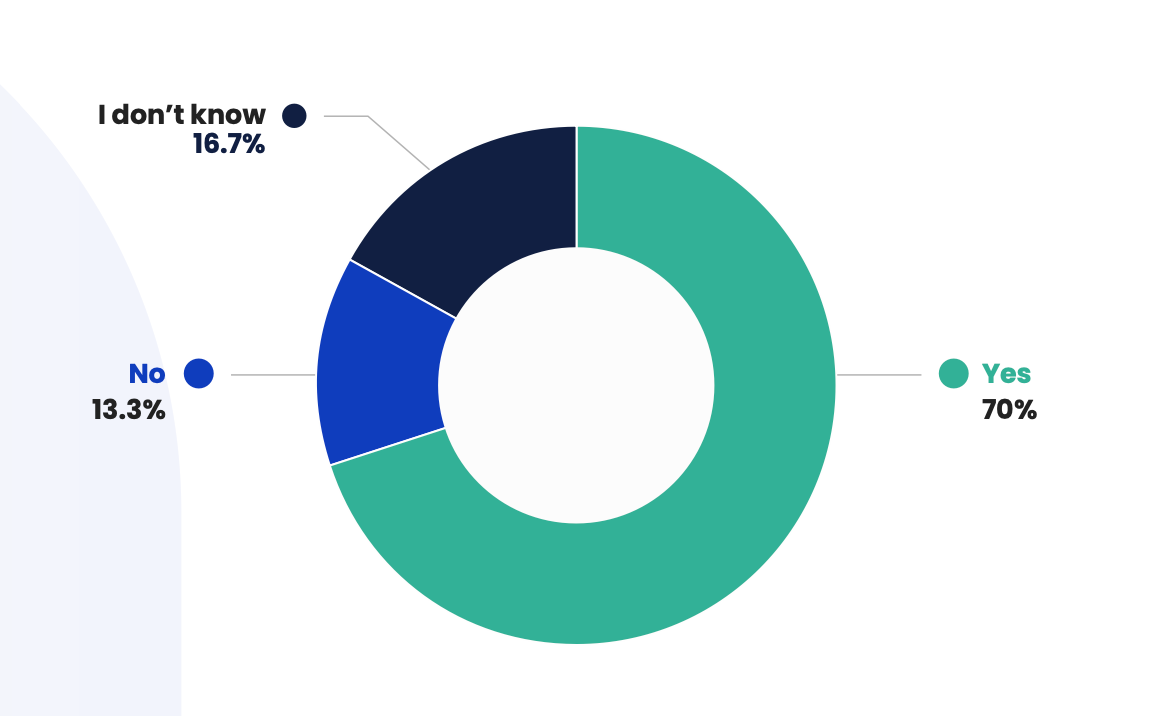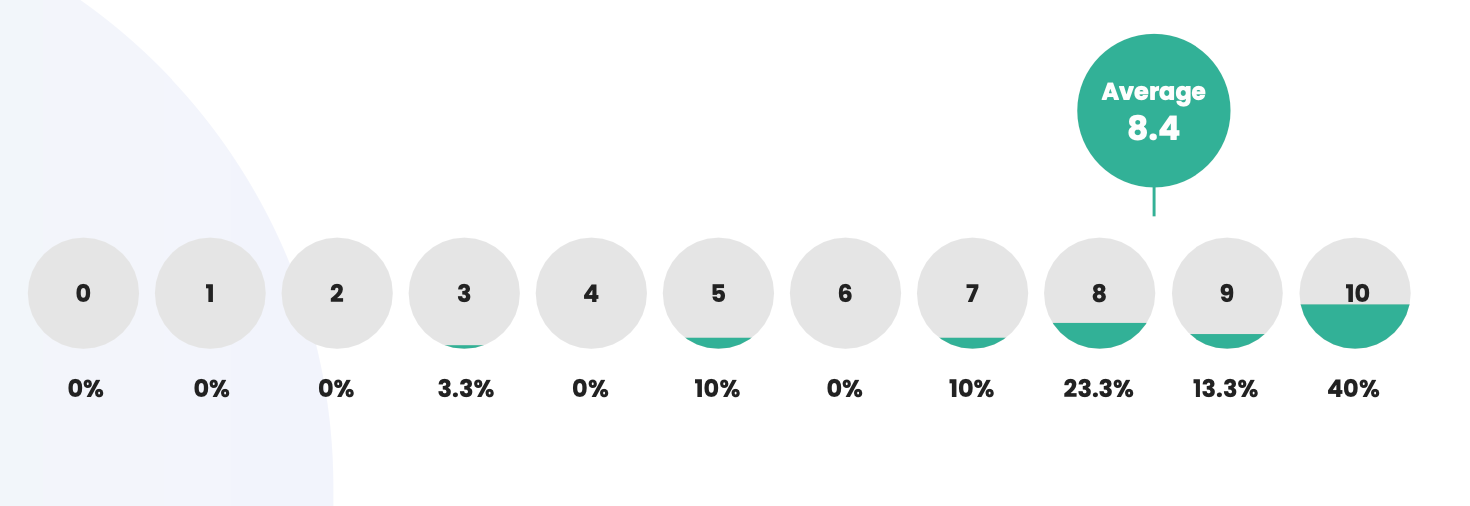For a long time, branding has been seen as essential for B2C businesses, but largely irrelevant in B2B.
The persistent belief is that price is the deciding factor behind B2B purchases, and a customer’s relationship with the sales rep, rather than the brand itself.
But those views are now considered outdated, and most marketers understand the true value of a strong brand for their B2B organization. With an effective branding strategy, you can build trust with prospective customers and create positive associations with your business before they’ve even made an inquiry.
However, certain attitudes around branding in B2B still persist. As part of our State of B2B branding report from this year, we took a look at how marketers perceive the importance of their brand to their customers. You can read the full report, or read on to discover just a snapshot of our findings.
CEOs and the value of brand marketing
We wanted to get an idea of how those who work in B2B branding consider the function of branding, and if they believe they’re getting enough support in their branding efforts. Marketers can do so much more when those in charge understand their crucial work and everyone at the organization is on the same page about the direction they want to take their brand.
So, we asked our survey respondents if they believed their CEO understands the importance and value of brand marketing. Here are the results.

The majority of people think their CEO does understand how important branding is, which is a good sign! Support from the top will better enable marketers to fulfill their role.
The function of branding in B2B
We asked about the perceived function of branding in B2B, with a list to choose from, of which they could select multiple options. The following is the percentage of people who chose each option.

Just over three-quarters of respondents (76.7%) believe that at least one of the functions of branding in B2B is to differentiate themselves from competitors. Building an emotional connection with an audience (63.3%) and driving sales (60.0%) come next, followed by building customer loyalty (56.7%), expanding market reach (53.3%), and finally for recruitment purposes (40.0%).
When we break the results down by company size of our respondents, we start to see interesting differences between how branding is perceived by larger companies vs smaller ones.
While “Differentiate yourself from competitors” is seen as the most important for all companies regardless of size, 81.8% of larger companies chose “To build an emotional connection with your audience”, compared to just 52.6% of Start-ups and Scale-ups. Larger companies also chose “To build customer loyalty” at a higher rate compared to smaller ones, at 72.7% vs 47.4%. Where Start-ups and Scale-ups beat larger companies was with “Drive sales”, at 68.4% vs 45.5%.
What we can see is a difference in priorities for branding between smaller and larger companies. For Start-ups and Scale-ups, the focus seems to be more on driving revenue through brand recognition. For larger companies that perhaps aren’t as concerned about getting off the ground, their focus leans more towards establishing their brand within their audience, building those relationships and connections.
“Having a strong brand is important because it helps you stand out amongst your competitors. Whether you're B2B or B2C I believe that putting in the leg-work to get your brand established can only give you an advantage. Having a good brand gives you a reason for customers to choose your brand over competitors.” - Steffan Mitchell
Customers' emotional connection to brands
While a large percentage of our respondents believe building a brand means building that emotional connection with their audience, we wanted to know if they considered their current customers to have an emotional connection with their brand already.

The majority believe that their customers do (70.0%) but more respondents were unsure (16.7%) than outright believed it not to be the case (13.3%).
Unsurprisingly, the larger companies had more confidence that their customers have an emotional connection to their brand, with 75% of No responses and 80% of I don’t know responses coming from either a Start-up or Scale-up.
When asked to rank how important it was for customers to have an emotional connection with their brand from 1 (not important at all) to 10 (absolutely essential), the results showed a strong preference for it being important.

The majority of respondents rated the importance as absolutely essential (40%) that their customers build an emotional connection with their brand.
Of those who didn’t believe it was as important (selected a number from 1 to 5), they also don’t currently believe that their audience has an emotional connection to their brand, with all of them selecting either “No” or “I don’t know” to the question “Do you think your customers have an emotional connection to your brand?” Of those that chose an option higher than 5 for importance, 80.8% believe their customers already have an emotional connection to their brand.
It seems that companies that don’t believe their customers are emotionally connected to their brand don’t rate it highly for importance, likely because it’s not something they’ve seen results with.
Branding and brand marketing as a priority
On a scale of 1 to 10, we asked respondents to tell us how high of a priority brand marketing is considered to be for them in their business, with 1 being not important at all, and 10 being absolutely essential.

The results make it clear that branding is rated very highly in terms of importance for our respondents, with the lowest rating being a 5, quite important, and most people (39.1%) choosing 10, absolutely essential.
Competitors' brand
We also wanted to get a sense of where respondents rate their branding efforts compared to their competitors.
So, we asked on a scale where they rate their brand currently from 1, non-existent, to 10, the strongest brand in their industry. Here are the results.

Here the results are a bit more mixed, with the lowest option chosen sitting at a 3, and the majority of respondents sitting at a 7 or 8 (20.0% respectively).
We observed a correlation between those who believe their brand ranks highly and those who believe that their customers currently have an emotional connection to their brand, with 66.7% of respondents with a low competitor comparison rating (5 or less) selecting “No” or “I don’t know” as to whether they believe their customers have an emotional connection with their brand.
State of B2B branding report
Want to discover more of our findings, including how marketers are building their brand awareness and what their budget allocations are? Download the full report today!



 Follow us on LinkedIn
Follow us on LinkedIn


